




 |
 |
 |
 |
 |
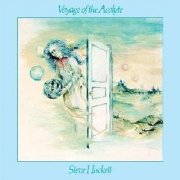 |
Voyage of the Acolyte (1975, 40.52/64.24) *****/TTTTT |
|
| Ace of Wands Hands of the Priestess Part I A Tower Struck Down Hands of the Priestess Part II The Hermit Star of Sirius The Lovers Shadow of the Hierophant |
[remastered CD adds: Ace of Wands (live) Shadow of the Hierophant (extended playout version)] |
|
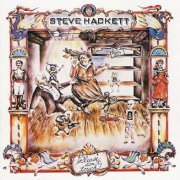 |
Please Don't Touch (1978, 38.32/54.30) ***½/T |
|
| Narnia Carry on Up the Vicarage Racing in A Kim How Can I? Hoping Love Will Last Land of a Thousand Autumns Please Don't Touch |
The Voice of Necam Icarus Ascending [remastered CD adds: Narnia (John Perry vocal) Land of 1000 Autumns/Please Don't Touch (live) Narnia (alternate version)] |
|
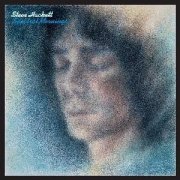 |
Spectral Mornings (1979, 39.08/73.31) ****½/TTTT½ |
|
| Every Day The Virgin and the Gypsy The Red Flower of Tachai Blooms Everywhere Clocks - the Angel of Mons The Ballad of the Decomposing Man Lost Time in Cordoba Tigermoth Spectral Mornings |
[remastered CD adds: Every Day (alternate mix) The Virgin and the Gypsy (alternate mix) Tigermoth (alternate mix) The Ballad of the Decomposing Man (alternate mix) Clocks - the Angel of Mons (single version) Live Acoustic Set Tigermoth (live)] |
|
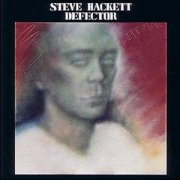 |
Defector (1980, 37.05/59.48) ****/TTT |
|
| The Steppes Time to Get Out Slogans Leaving Two Vamps as Guests Jacuzzi Hammer in the Sand The Toast |
The Show Sentimental Institution [remastered CD adds: Hercules Unchained Sentimental Institution (live) The Steppes (live) Slogans (live) Clocks (live)] |
|
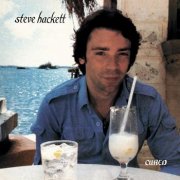 |
Cured (1981, 34.05) **½/THope I Don't WakePicture Postcard Can't Let Go The Air-Conditioned Nightmare Funny Feeling A Cradle of Swans Overnight Sleeper Turn Back Time |
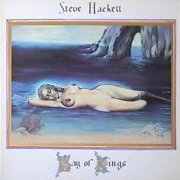 |
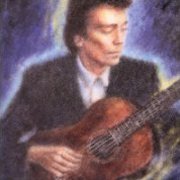 |
Bay of Kings (1983, 36.50) ****/T½ |
|
| Bay of Kings The Journey Kim Marigold St Elmo's Fire Petropolis Second Chance Cast Adrift |
Horizons Black Light The Barren Land Calmaria |
||
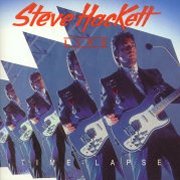 |
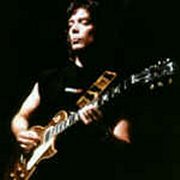 |
Time Lapse (1992, recorded 1981/90, 69.09) ****½/TTT½ |
|
| Camino Royale Please Don't Touch Everyday In That Quiet Earth Depth Charge Jacuzzi The Steppes Ace of Wands |
Hope I Don't Wake The Red Flower of Ta Chai Blooms Everywhere Tigermoth A Tower Struck Down Spectral Mornings Clocks - the Angel of Mons |
||
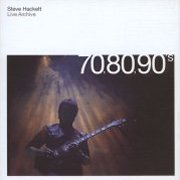 |
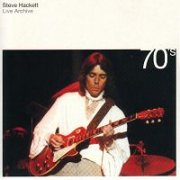 |
Live Archive 70, 80, 90's, Discs 1 & 2: 70's (2001, recorded 1979, 112.35) *****/TTTT |
||
| Intro Please Don't Touch Tigermoth Every Day Narnia The Red Flower of Tai Chi Ace of Wands Carry on Up the Vicarage |
Etude in A min Blood on the Rooftops Horizons Kim The Optigan A Tower Struck Down Spectral Mornings (Introductions) |
Star of Sirius Shadow of the Hierophant Clocks I Know What I Like Wardrobe Boogie Racing in A Racing in A Coda |
||
 |
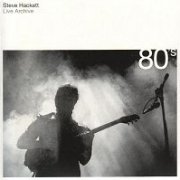 |
Live Archive 70, 80, 90's, Disc 3: 80's (2001, recorded 1981, 75.00) ****/TT |
|
| The Air Conditioned Nightmare Jacuzzi Funny Feeling Ace of Wands Picture Postcard The Steppes Every Day Overnight Sleeper |
Hope I Don't Wake Slogans A Tower Struck Down Spectral Mornings The Show Clocks |
||
 |
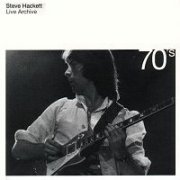 |
Live Archive 70, 80, 90's, Disc 5: 70's (2001, recorded 1978-79, 75.41) *****/TTTT |
|
| Please Don't Touch Tigermoth Every Day The Steppes Narnia Red Flower of Taichi Blooms Everywhere Sentimental Institution Star of Sirius |
Spectral Mornings Clocks Ace of Wands Hands of the Priestess Racing in A |
||
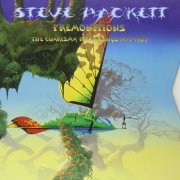 |
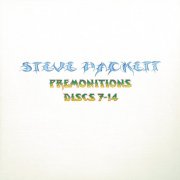 |
Highly Strung etc. (Premonitions, disc 4) (2015, 66.59) **½/½ |
|
| Camino Royale Cell 151 Always Somewhere Else Walking Through Walls Give it Away Weightless Group Therapy India Rubber Man |
Hackett to Pieces Guitar Boogie Time Lapse at Milton Keynes Walking Through Walls (12" version) Cell 151 (BBC) Walking Through Walls (BBC) Hackett to Pieces (BBC) Please Don't Touch (BBC) |
||
 |
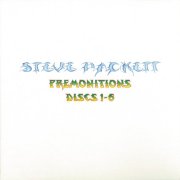 |
Live at the New Theatre, Oxford, 1st July 1979 (Premonitions, discs 5 & 6) |
||
| Please Don't Touch Tigermoth Every Day Narnia The Red Flower of Tachai Blooms Everywhere Ace of Wands |
Carry on Up the Vicarage Acoustic Medley Etude in A Minor Blood on the Rooftops Horizons Kim The Optigan/A Tower Struck Down |
Spectral Mornings Star of Sirius Shadow of the Hierophant Clocks I Know What I Like (in Your Wardrobe) Racing in A |
||
 |
 |
Live at the Theatre Royal, Drury Lane 11th November 1979 |
|
| Please Don't Touch Tigermoth Every Day Ace of Wands Sentimental Institution The Red Flower of Tachai Blooms Everywhere |
Spectral Mornings Clocks Acoustic Medley Etude in A Minor Blood on the Rooftops Horizons Kim |
||
 |
 |
Live at the Reading Festival, 28th August 1981 (Premonitions, disc 8) |
|
| The Air Conditioned Nightmare Every Day Ace of Wands Funny Feeling The Steppes Over Night Sleeper |
Slogans A Tower Struck Down Spectral Mornings The Show Clocks |
||
Current availability:
Mellotrons used:
Steve Hackett joined Genesis in 1971, in time for Nursery Cryme, going on to play on another five studio albums and launch his own moderately successful solo career. Voyage of the Acolyte was recorded in the lull between Peter Gabriel leaving Genesis and Phil Collins taking over as vocalist and is a stunning piece of work. I suspect Hackett always felt underused in Genesis, particularly as a writer; this album shows what he was really capable of, nary a duff track amongst its forty-odd minutes. It has to be said that Hackett lacked the Mellotronic restraint of his regular outfit's keyboardist, but it's difficult to fault a performance like this; strings and choir everywhere you look, often simultaneously, not to mention a brief burst of flutes on Star Of Sirius. Notable highlights are both parts of Hands of the Priestess, A Tower Struck Down and the superb Shadow of the Hierophant, the latter an enduring Mellotron classic. I was always under the impression that this last track was unperformable live in its entirety, until the recent live box proved me wrong.
Genesis swung into action again at the end of that year and Hackett never toured his album. He didn't record solo again until after his departure from the band, precipitated, it's said, by their refusal to record more of his material (only one Hackett track, the sublime Blood On The Rooftops, made it onto Wind & Wuthering, rumoured to have been planned as a double, to include both Please Don't Touch and the Spot the Pigeon material). To be brutally honest, you can see why after listening to '78's Please Don't Touch. Something of a curate's egg, it's possibly too diverse for its own good; a handful of 'classic' Hackett pieces (the title track and the acoustic Kim spring to mind) thrown in with an attempt at a torch song (Hoping Love Will Last), Genesis-type humour (Carry On Up The Vicarage) and studio messing about (The Voice Of Necam). Where Voyage of the Acolyte was cohesive, Please Don't Touch sounds like several different bands on the same album, not helped by Hackett's use of guest musicians on different tracks, including a couple of guys from America's most successful progressive band, Kansas. There is some good material, but the album sounds unfocussed compared to its predecessor. The bonkers title track is the album's chief Mellotron-fest, although there's also some to be heard on the schmaltzy Love Will Find A Way.
By the following year, Steve had recruited a proper touring band, including keyboard whizz Nick Magnus (ex- the rather wonderful and little-known Autumn and briefly with The Enid), the recorded results being noticeably far more together; Spectral Mornings is an excellent album, only the seemingly obligatory 'joke' song, The Ballad Of The Decomposing Man, letting the side down. Every Day (or Everyday) is a typically Hackett vocal number, with a strange 'musical theatre' feel to the vocal lines, but things pick up considerably by the pseudo-Japanese The Red Flower Of Tachai Blooms Everywhere, featuring some nice Mellotron strings, segueing into another absolute Hackett classic, Clocks - The Angel Of Mons. Clocks is one of those pieces of music that makes the hairs stand up on the back of your neck; a doomy Mellotron string part swelling up underneath a bass melody from hand-played Moog Taurus pedals (another Hackett favourite), leading into a frantic 'verse' section, only to repeat the intro with variations. Tigermoth has a great instrumental section at the beginning, replete with Mellotron choirs, while the title track (another absolute classic) finishes things off with the sort of melody most songwriters would kill for. I'm told that Spectral Mornings itself was originally intended to be a vocal piece, but the rest of the band persuaded Steve to leave it as an instrumental. Unfortunately, a bunch of neo-prog types, including Magenta's Rob Reed, elected to record a vocal version for The Parkinson's Society UK, titled Spectral Mornings 2015. Not only have I not heard it, but I have precisely no intention of doing so. I suggest you do the same, good cause or no.
1980's Defector has some great moments, but the rot appears to be setting in; it starts brilliantly, with the Eastern-flavoured The Steppes (great Mellotron string line), but, apart from maybe three or four other instrumental tracks, including the other two containing Mellotron, the rest of the album has too much of that idiosyncratic vocal stuff, not least the crummy Time To Get Out. Another 'joke' track, the Optigan-driven Sentimental Institution, finishes things off badly, I'm afraid to say, although The Toast is better than expected, while Slogans and the upbeat Jacuzzi help to give the album four stars. The following year's Cured is far worse, with only one 'killer' piece, the instrumental (can you see a pattern emerging here?) The Air-Conditioned Nightmare, named after a book on the horrors of modern living, although the classical guitar instrumental A Cradle Of Swans is every bit as good as the bulk of Steve's guitar pieces. A couple of other songs have passable parts, not least the bulk of Overnight Sleeper, but overall, this is most disappointing. Part of the problem must be down to Steve's decision to dispense with the bulk of his band, leaving just himself and Nick to do everything, making for (I suspect) a lack of perspective. The only Mellotron (actually Novatron) track is another dodgy vocal number (as is most of the rest of the album), Can't Let Go, with a brief string part near the beginning.
Steve moved right away from the Mellotron at this point, although I'm assured that the stuff that sounds like sampled strings on the all-acoustic Bay of Kings is in fact heavily-treated Mellotron. It's a really quite beautiful album, but the Mellotron honestly doesn't enhance it very much. The next Hackett Mellotron on record is an archive live release from 1992, Time Lapse, featuring material from gigs in 1981 and 1990, the '81 tracks strangely sandwiched between two chunks of later recordings. The '90 stuff has decent enough Mellotron samples, from Julian Colbeck, but the '81 recording has Magnus' real thing on almost every track, pretty much as per the studio versions. For the record, tracks 1-5 and 13-14 are from 1990, strangely bookending the earlier material, which explains the lack of real Mellotron on Clocks.
In late 2001, Steve released a 4-CD set (expandable to five via his website), the grammatically-challenged Live Archive 70, 80, 90's, of live material from 1979, 1981 and 1993. Well, what can I say? Top-notch quality and some great gigs, namely Hammy Odeon '79, Castel Sant'Angelo, Rome, '81 and the Clapham Grand, London, '93, the bonus disc being made up of '79 and even '78 tracks. There are some great performances contained herein and the only disc of the five not to feature Nick Magnus' mighty Mellotron is, of course, the '93 set (a gig I attended, incidentally). Disc two proves that Shadow Of The Hierophant was indeed performable live in its entirety and the band were stunningly well-rehearsed, as proved by their tightness on Racing In A. The five tracks on disc one from the Etude to Kim are actually Steve's acoustic set, sounding identical to the version on the b-side of the Clocks 12", originally released in '79. The bonus disc contains two tracks unavailable on the main set, including a cracking version of Hands Of The Priestess, well worth splashing out on.
Mellotronically speaking, it's rather low in the mix on most of the '79 set, often only used for a few seconds on any given track, obvious exceptions including The Red Flower Of Tai Chi, Shadow Of The Hierophant and Clocks. Mellotron on I Know What I Like? After the main part of the song, the band mess around with it a bit, Nick playing the Star Trek theme on Mellotron strings. Far less Mellotron by '81, all the set's choirs sounding like they emanate from Roland's VP-330 vocoder to my ears, leaving us with a mere five tracks of strings, mostly used sparingly. The most impressive disc here, both musically and Mellotronically, is, ironically, the one not included in the standard set. Disc 5 (Newcastle '79/Hammersmith '78) not only includes the bulk of the best material from the two '79 discs, but adds pre-release versions of The Steppes and the amusing Sentimental Institution, not to mention a gorgeous take on Hands Of The Priestess. Nick's Mellotron is all over the place, particularly evident on Red Flower..., Clocks and Hands Of The Priestess, with a part on the '78 Racing In A/Ace Of Wands segue that you won't hear on later versions.
After the original, rather shoddy CD issues of Steve's albums, many of which didn't even credit the musicians, a beautiful remastering and expanding job was done on the first four in 2005. Voyage of the Acolyte gains a live version of Ace Of Wands from an undated Theatre Royal, Drury Lane show, with a smattering of Mellotron choirs, but the ace in the pack is the 'extended playout version' of the already mighty Shadow Of The Hierophant. A stupendous seventeen minutes long, this is obviously the original, unedited version, adding six minutes of heaven to the song's end section; if you listen closely (and you're as sad as me), you can work out which bits were chopped for the album edit. Please Don't Touch adds two different takes of the rather ordinary Narnia, plus a killer (no info at all) live version of Land Of 1000 Autumns/Please Don't Touch, with some great Magnus Mellotron strings. Spectral Mornings opts for alternate mixes of four album tracks, including a shortened Tigermoth, losing the Mellotron-and-Taurus intro, plus the entire contents of the Clocks 12", including the main track's edit, the acoustic set and the other half of Tigermoth, this time leaving out the somewhat inessential 'song' part. Defector adds the punky b-side (no, really), Hercules Unchained, another Drury Lane track (Sentimental Institution), possibly dating Ace Of Wands from around 1980, too and three Reading Festival tracks, all containing Mellotron, though possibly from two different festivals, going by my boots of the sets. In a word (OK, several words), these are clearly the versions of Steve's early albums to get, both musically and Mellotronically.
2015's Premonitions: The Charisma Recordings 1975-1983 does exactly what it says on the tin, containing everything from Voyage through to the sub-par Highly Strung, not to mention three live sets and the by-now ubiquitous run of Steven Wilson remixes. Upon listening to Highly Strung again, I'm reminded why I own the original album on neither vinyl nor CD; it takes Cured's worst aspects and amplifies them, material such as Weightless and India Rubber Man failing to engage those who revere Hackett's early solo work. Maddeningly, moments of instrumental genius pop up occasionally, but, sadly, not enough to make this worth the effort. The four-track BBC session tacked onto the end of the disc gives us, quite literally, a handful of Mellotron string chords on Please Don't Touch, the only older piece recorded. Not even a half T, really. Perhaps unsurprisingly, discs 5 & 6, Live at the New Theatre, Oxford, 1st July 1979, are an effective re-run of the first two discs from Live Archive, albeit from a different night, so no great surprises, musically or Mellotronically. The mighty machine gets an outing on almost everything, holdouts being Narnia, Carry On Up The Vicarage, the Acoustic Medley and The Optigan, Mellotronic highlights including the superbly rearranged Please Don't Touch that kicks off proceedings and, of course, Shadow Of The Hierophant, although several highlighted tracks feature no more than a few seconds of The Beast. Disc 7, Live at the Theatre Royal, Drury Lane 11th November 1979, is an abbreviated version of the July set with one addition, the jokey, Optigan-driven Sentimental Institution, while Clocks loses its intro, for some reason. The Mellotron parts are the same as on the previous set. Disc 8, Live at the Reading Festival, 28th August 1981, sees a band on the cusp of changing its sound completely, typified by the likes of Funny Feeling and The Show, although a fair chunk of the set consists of old favourites. Along with the stylistic shift, Magnus plays far less Mellotron than before, his parts on Every Day and Slogans replaced by polysynth, although he adds a strings part to Ace Of Wands missing from earlier versions, while the expected parts turn up on The Steppes, A Tower Struck Down, Spectral Mornings and Clocks.
Hackett went through his career doldrums in the late '80s/early '90s, after a disastrous linkup with Steve Howe in the entirely average GTR. However, by the mid-'90s he was recording regularly again and for his '97 album of mostly reworked Genesis material, Genesis Revisited, Hackett sampled a MkII, using the samples extensively (see below). Steve Hackett sold his Novatron 400 to Paul Weller some years ago, but he's obviously rediscovered that Mellotron magic, if only via samples.
Steve last used a real Mellotron on 1984's Bay of Kings and then only sparingly, later Mellotronic releases all consisting of archive material. However, in 1996, he borrowed a MkII from Martin and John at Streetly Electronics, which not only had to be carried down a flight of stairs into a basement studio, but then apparently caught fire... Although, for some reason, Steve didn't actually record with it (pre-conflagration), he did run off a series of samples from the behemoth, which he used on his first album to openly acknowledge/play on his past, Genesis Revisited.
I believe there are two different versions of the album, but the commonest UK/US release is the one I've reviewed. Genesis fans' views on it were somewhat mixed upon its release, some seeing his reinterpretations of classic material as sacrilege, while others welcomed fresh takes on overly-familiar material. On the 'reinterpretations' front, we get an orchestral Firth Of Fifth, with a completely different middle section, a heavily re-jigged Los Endos and, best of all, I Know What I Like arranged for a small jazz combo, even more light-hearted than the original. Waiting Room Only takes the concept of the original Lamb piece, being basically a collage of almost anything you can think of, For Absent Friends is given an orchestral accompaniment, albeit without drastically changing the original song structure and Your Own Special Way is turned into the big, cheesy '80s DX7 ballad it always threatened to be. Of the two unfamiliar tracks, Valley Of The Kings is a new Hackett composition, while Déja Vu was written with Peter Gabriel in 1973 but never finished; hearing it now, I'm not sure it was worth the effort.
Steve has a cast of thousands playing on the album, not least John Wetton, Bill Bruford, Tony Levin, Chester Thompson, Alphonso Johnson, Pino Palladino, Ian McDonald and Paul Carrack, which, although it makes for consistency problems, presumably gives each track the best combination of musicians available. The aforementioned Mellotron samples turn up on several tracks, with the original strings/brass mix on Watcher Of The Skies, strings on Firth Of Fifth and The Fountain Of Salmacis and choirs on Los Endos, although the highlight has to be the middle section of I Know What I Like, where Steve attempts a Bonzo Dog Band The Intro And The Outro, the very first introduction being, "Let's here it for... Mellotron string[s]", followed by a little melody performed on said sound and subjected to pitchbend. It almost convinces, Steve, it almost convinces...
'98's The Tokyo Tapes (not the first time that title's been used, Steve) commemorates a couple of dates with a one-off band, including Julian Colbeck, Chester Thompson, Ian McDonald from the original King Crimson lineup, legitimising their versions of the two In the Court... tracks contained herein and John Wetton, fresh from his appearance on Genesis Revisited. Half a dozen Genesis, mostly from said album, another half dozen or so solo Hackett, the two Crimso and some filthy Wetton AOR balladry, including an acoustic version of Asia's vile Heat Of The Moment, topped off with two rather ordinary new Hackett studio tracks. Does it work as a concept? Hmmm. They get away with the Crimson, but Wetton's compositions stand out like a (very) sore thumb, sounding severely out of place amongst the heavy-duty prog. Never stopped him doing the same in his solo sets, though, did it? Generally speaking, though, this is pretty enjoyable, if slightly inessential, since you're not really getting anything especially new, unless by 'new' you mean 'musicians slightly unfamiliar with the material playing on each other's songs'. Colbeck and/or McDonald add samplotron to a few things, notably Watcher Of The Skies (duh), The Steppes and The Court Of The Crimson King (bigger duh), but you're not going to bother getting this for some Mellotron samples.
The following year's Darktown was Steve's first new album of 'regular' songs for several years; I'm afraid to say that, on a fresh listen, it really isn't that inspiring. OK, energetic opening instrumental Omega Metallicus isn't bad and the title track's pretty atmospheric, but average balladry such as Man Overboard and Days Of Long Ago don't help its cause any. Roger King adds the set's samplotron, with 'Mellotron plundering' pitchbent strings on Darktown Riot and 'Mellotron modelled by' strings that don't actually sound that Mellotronic on closer In Memoriam. And if you've ever seen anyone attempting to model a Mellotron, I'd love to see the pictures. 2003's To Watch the Storms is a better effort all round, highlights including his take on Thomas Dolby's bonkers The Devil Is An Englishman and the even more bonkers (and rather Crimsonesque) Mechanical Bride, soon to become a live favourite and the repository of the album's only samplotron, with an unfeasibly fast string part just before the track goes completely off-piste. Admittedly, we also get some rather weaker efforts, but for a modern Hackett studio album, you could do a lot worse.
Steve's set at NEARfest 2002 effectively began his 'renaissance period', returning after years away from the regular live arena. 2003's Live Archive NEARfest documents an excellent set, the band refusing to wholly pander to the archivists while giving the audience enough old (both solo and Genesis) material to keep 'em happy. Highlights include the then-brand new Mechanical Bride, Riding The Colossus, The Steppes and Spectral Mornings, but there's little to complain about with either the tracklisting or the recording quality. Keyboard guru Roger King adds sampled Mellotron to a good few tracks, unsurprisingly, including not only the obvious (Watcher Of The Skies, Firth Of Fifth, The Steppes, Los Endos), but also the less so (Mechanical Bride). Live Archive 03 is a similar set from the same year, the most significant changes being a longer acoustic set and the addition of Please Don't Touch, Slogans, Clocks and In That Quiet Earth, with, of course, a concomitant number of tracks being lost. Do you need to hear it? Depends how much of a Hackett fanatic (does that nearly rhyme?) you are, I suppose. It's an excellent set, but too close to ...NEARfest for comfort. Again, a good helping of samplotron, with parts on most of the 'new' tracks.
At this point, the archive releases start getting a little silly; well, how many different Hackett sets with minor variations do you need? Actually, in fairness, Live Archive 04 features a markedly different running order to the previous year, mixing old faves such as The Air-Conditioned Nightmare, Ace Of Wands and Hammer In The Sand (never before played live?) with Genesis stalwarts including Fly On A Windshield and Blood On The Rooftops (also never before played live?). In fact, were it not for a rather weak opening to the set (sorry, but material like Circus Of Becoming and Serpentine Song are never going to thrill this particular heart), this would gain another half star. Lashings of samplotron, of course, including a major string part in the middle of Brand New, plus all the usual suspects. 2009's guest-stuffed Out of the Tunnel's Mouth is typical modern Hackett in that it mixes his own peculiar brand of musical theatre-esque songs with his highly stylised take on the progressive genre, although, sadly, the former seems to take precedence over the latter. Best track? Probably the instrumental Tubehead, first cousin to To Watch the Storms' Mechanical Bride, although near-Eastern-esque closer Last Train To Istanbul gets an honourable mention. Although those samples may crop up elsewhere, their most obvious use on the album is the full-on strings on Ghost In The Glass, but, once again, the samplotron's kept well in check. Initial copies of the album add a second disc, mostly comprising live material from Italy, with strings on everything except bonus studio effort Every Star In The Night Sky.
Another tour, another live album... 2010's Live Rails accurately documents Steve's Out of the Tunnel's Mouth sojourn (none of this 'single disc edit' crap), featuring a reasonable mix of new (most of the album), old (and older) and Genesis, the only real fault being some of the weaker new material. The whole is enlivened by the presence of 7th dan ninja bassist Nick Beggs, a man whose outrageous musicianship is only matched by his stupendous fashion sense (during Steve's following tour, Beggs was seen sporting a steampunk-style Victorian ensemble, complete with floor-length waistcoat. This is a man I've seen wearing a black kilt on stage). Highlights include The Steppes, a gorgeous Spectral Mornings and an incendiary Clocks, Beggs triggering Taurus samples from his Rickenbacker (note: there's no way of telling this from the actual recording), although you're not really getting anything much you haven't heard before. Plenty of Roger King's samplotron, although the choirs sound more generic than Mellotronic; frankly, for Mellotron use, you're still better off sticking with the original recordings (he said, contentiously).
Subsequent studio albums may or may not contain samplotron, although his (to date) five live sets incorporating much Genesis material quite certainly do. Reviews? Can I be arsed? You know what's there: the parts from the studio albums. Although Steve's best studio work is from his 'real Mellotron' days, he's recorded some decent later material, although you may need to trawl through several albums to compile it. His live albums of the last decade or so all have their strong points, too, but I'm yet to be convinced that he's bettered his '78-'81 period, with the added bonus of real Mellotron.
See: Genesis | Tony Banks | Peter Gabriel | Mike Rutherford | Nick Magnus